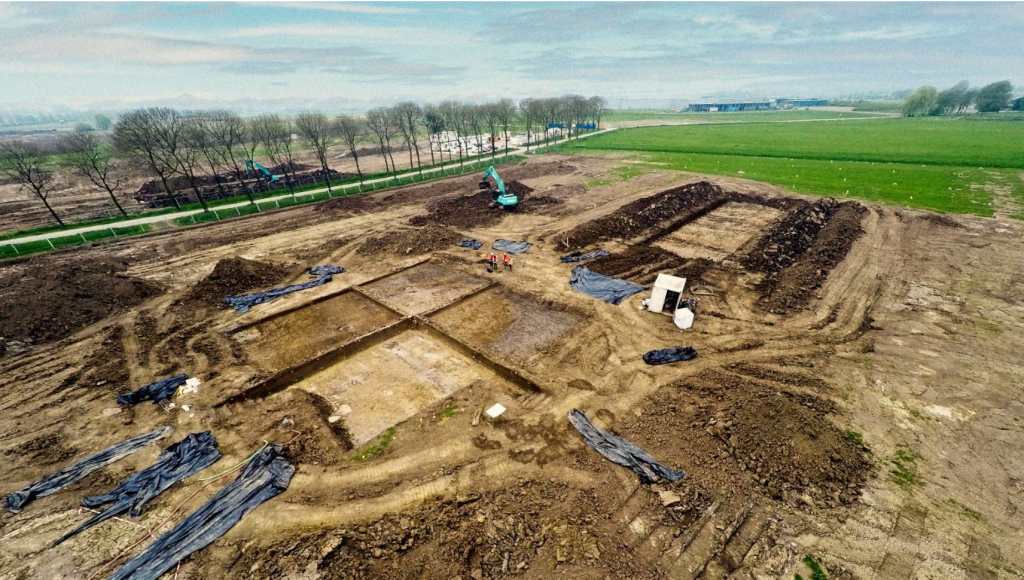Archaeologists have uncovered a mysterious sanctuary in the central Netherlands made of burial mounds and ancient offerings of human and animal bones that has striking similarities to Stonehenge.
The 4,000-year-old site was discovered in the town of Tiel and, like prehistoric stone circle Stonehenge, tracked the position of the sun on the solstices.
“The largest mound served as a sun calendar, similar to the famous stones of Stonehenge in England,” the municipality of Tiel said in a statement. “This sanctuary must have been a highly significant place where people kept track of special days in the year, performed rituals and buried their dead. Rows of poles stood along pathways used for processions.”
The site previously yielded significant archaeological finds. In 2017 excavators unearthed several graves, one of which held the remains of a woman buried with a glass bead from Mesopotamia (modern-day Iraq). It was the oldest bead ever found in the Netherlands and finally proved that the region was, to some degree, in contact with far-flung civilizations.
A selection of the discoveries from the site will be exhibited in a local Tiel museum and in the Dutch National Museum of Antiquities.



